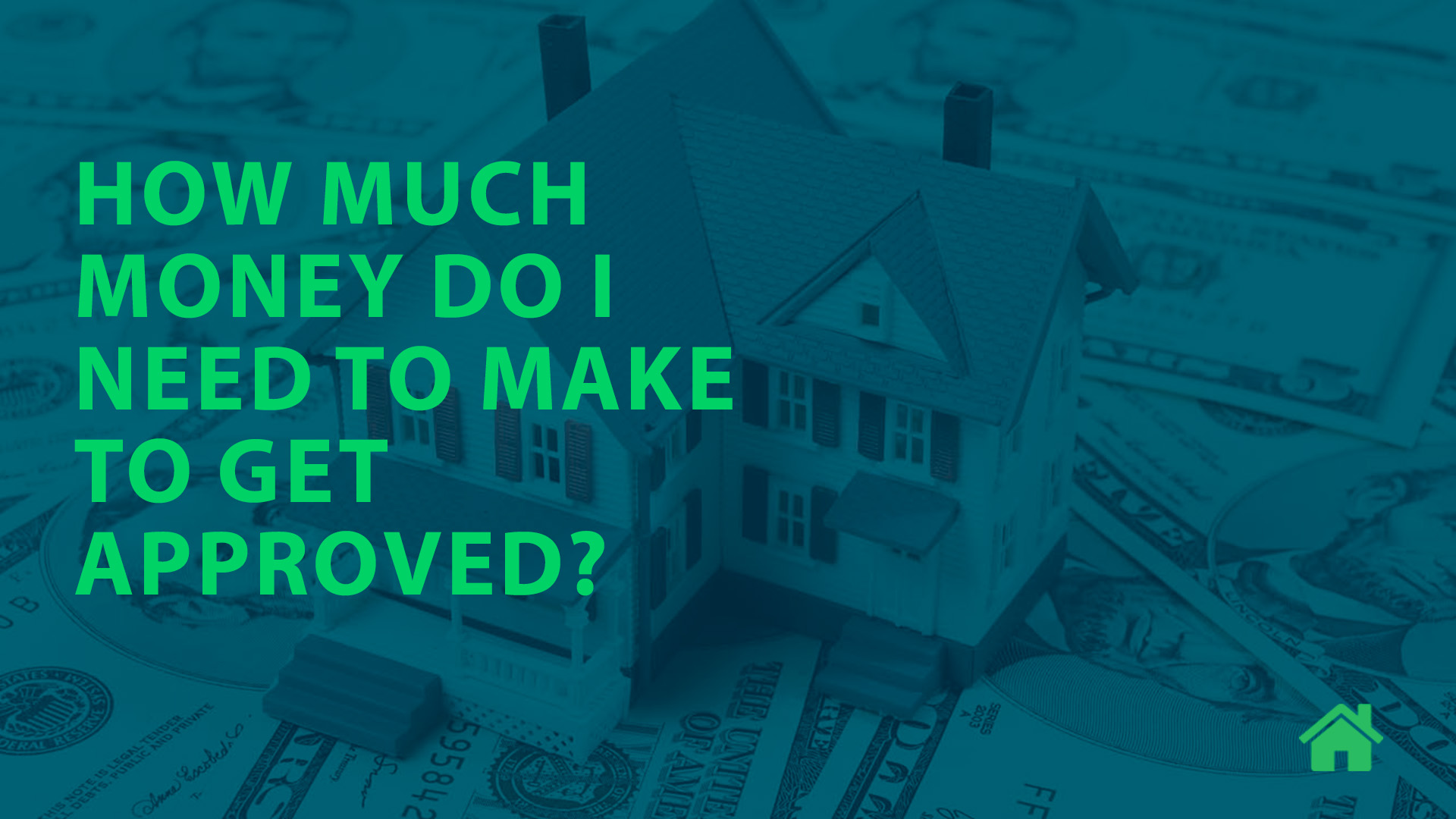How much money do I need to make to get approved?
This is a very common question among home buyers. But the amount of money you earn plays a smaller role in getting a mortgage than you might think.
You getting approved for a Mortgage really depends on many factors:
- What is the purpose of this Mortgage Loan (Primary residence/ Vacation home/ Investment)?
- What type of property are you buying (house/ condo/ townhome/ multi-unit)?
- What is your credit score?
- How much down payment are you able to afford?
- What are your liabilities and debts (how much do you owe on a monthly basis)?
These are just a few questions that will determine what type of loan programs suited best for you, your budget and your income. Our job as mortgage experts is to run you through an analysis by asking questions and having you fill out a pre-qualification form. This process helps understand your buying needs so we can determine the list of banks and lenders that will get you approved.
Our goal is to connect you with the right professional specializing in these type of loans so they guide you along the way to your real estate dream.
Income Checklist
1. How do you earn your income?
- Are you a W2 employee? -> We need to see your 2 years of W2s + 30 days of paystubs
- Are you earning as 1099? -> 2 years of 1099 statements
- Self-employed? -> 2 years of Business & Federal Tax Returns + YTD statements from your CPA
But we have a lot of programs, where your income verifications are not required:
Check out our no doc mortgage where no income statements are needed at all or ask about our 12-months Bank Statement program, where you show 12 months of deposits from your clients to your Bank account (no tax returns/CPA letters required) and see what your qualify for.
2. What is your DTI?
It’s not only about how much you make. But how much you spend as well.
DTI is Debt-To-Income ratio. That’s what makes or breaks the deal. It’s the amount you owe every month (rent, car payment, credit cards payments, student loan, installment plans, another mortgage, etc.) versus the monthly amount you make pre-tax.
Your DTI ratio tells the Lenders whether you can afford to take on another debt or not. Generally, DTI of 45% or less is considered acceptable. If your DTI ratio is lower, you can borrow more money and afford “more house”. But if your DTI is higher than 50%, you may have trouble getting a conventional conforming loan.
However, we offer programs with no ratio requirement! Check it out
3. What is the amount of Down Payment you can afford?
Down payment is the amount of money that you put down on your mortgage. The majority of it is due during closing as a lot of times you pay a part of your down payment when signing a Contract to buy the property. Lenders express down payments as a percentage of the total loan amount. For example, if you buy a home worth $100,000 with 20% down, that means you have to spend $20,000 as a down payment.
There are loans available with a very small down payment (starting at 3% for a conventional loan), where all the verifications are needed (income, bank statements, etc) and there are also loans with a bigger down payment of 25-30-40%, but very little docs needed to qualify. The more you invest in your own property right away, the more confident Lenders will feel giving you a loan. Of course, other factors still apply, such as: your credit score and credit history and your capacity for a mortgage payment every month. Interest rates vary as well. But essentially it is your choice as a Borrower to pick the program that best suits your needs and wants and works best for you level of income.
4. Make sure you plan for other Costs associated with getting a Mortgage Loan.
To get a Mortgage Loan you need to be aware of all the costs that you will need to acquire at Closing on your property.
Some of them are:
- Appraisal fee (Professional report on your property’s worth)
- Title fees & documents (property ownership policies)
- Title insurance (protects you and your lender against third-party claims)
- Government & Property Taxes
- Hazard insurance for your property (needs to be pre-paid for a year, Lender’s requirement)
- Origination fee (Goes to the Lender for processing your Loan)
Make sure you plan for those expenses when thinking about getting a Mortgage Loan.
Final Takeaway
Even though a Lender might take a look at your income stream when you buy a home, there’s no set income requirement.
It’s important to remember that income isn’t the only factor that Lenders consider when deciding whether you qualify for a loan or not. Your DTI ratio, down payment and credit score & history are also very important. And don’t forget to consider and plan for closing costs.
-> We help find you funding specialists that specialize in many types of mortgage loans suitable for all types of income earned
-> These loan experts will help you choose the best program for your needs and wants
The quicker they intake your information, the faster they can work with lending institutions on getting your loan approved.

